Feds changing fuel economy rules: Federal efforts to coordinate fuel economy
 standards between its departments and with the state of California will be clarified in weeks ahead. National Highway Traffic Safety Administration Acting Administrator Heidi King said Tuesday at the Detroit auto show that a proposal would be released on March 30 with new fuel economy standards for light duty vehicles. President Donald Trump last year reinstated a review of NHTSA and Environmental Protection Agency rules for fuel economy and emissions to cover model years 2022 through 2025, which was part of his campaign to cut federal regulations. News of more talks between California and the Trump administration also came out this week. California Air Resources Board will be meeting in Washington this month with federal officials in an effort to reach agreement on phase two revisions that could sort out differences and avoid legal battles between automakers, the White House, and California.
standards between its departments and with the state of California will be clarified in weeks ahead. National Highway Traffic Safety Administration Acting Administrator Heidi King said Tuesday at the Detroit auto show that a proposal would be released on March 30 with new fuel economy standards for light duty vehicles. President Donald Trump last year reinstated a review of NHTSA and Environmental Protection Agency rules for fuel economy and emissions to cover model years 2022 through 2025, which was part of his campaign to cut federal regulations. News of more talks between California and the Trump administration also came out this week. California Air Resources Board will be meeting in Washington this month with federal officials in an effort to reach agreement on phase two revisions that could sort out differences and avoid legal battles between automakers, the White House, and California.
Infiniti electrifying most of its upcoming cars: Infiniti is joining Volvo and other near-luxury and luxury brands by electrifying its fleet by 2021 (with the exception of a few large SUVs). For these models, the company isn’t specifying whether it will include hybrids, plug-in hybrids, and batter electric vehicles in the electrified lineup. It will include BEVs that will have at least 200 miles of range, according to Infiniti and Nissan CEO Hiroto Saikawa. That range would be slightly farther than the new Leaf can go from parent company Nissan. “We are trying to position Infiniti as the premier electrified brand” as part of the five-year plan that will extend through 2022, he said.
On-demand mobility a very tough business to succeed in: Another sad tale is being told in the less-than-a-decade old business of on-demand mobility. See Jane Go, a ride- hailing app for women riders transported by women drivers, closed its shutters on Tuesday, January 9.
hailing app for women riders transported by women drivers, closed its shutters on Tuesday, January 9.
“As a young start-up, we have been unable to secure the necessary capital funding to continue our operations,” wrote CEO Cassandra Miller in a note posted on Facebook. “I know discontinuing our service will be a significant loss for many that we serve.”
The service was created by Laguna Niguel, Calif., residents Savannah Jordan and her father, William Jordan, in 2016 to offer women a safer alternative in the ride-hailing market.
Just as Facebook has inspired hundreds of social networking startups targeted to special interests, mobility services are seeing a wave of specialized services emerge. You can have your kids picked up and taken home after their music lesson. Someone else can do all your grocery shopping that will be delivered to your front door or kitchen. Meals can be delivered quickly and cheaply to you at home, work, or a social gathering. Then there’s always the Uber and Lyft model of having convenient, quick, affordable rides – taking away the hassles of being stuck behind the wheel in traffic and having to find a parking space.
Ride-hailing giant Uber has been the Facebook of mobility, following its beta launch in 2010 and San Francisco rides starting up in 2011. The past year has been a near-death experience for Uber, with newly hired CEO Dara Khosrowshahi now expected to revive the company.
Navigant Research recently published an analysis piece comparing the challenge Netflix faces competing with Disney to what companies like Uber and Lyft face compared to global automakers. Netflix is burning through a great deal of cash in creating its own catalogue of films and TV series to compete. Uber faces competition from companies like General Motors, Volkswagen, Daimler, and Ford, which are starting up and acquiring their own mobility service business units.
Green Auto Market Extended Edition subscribers this week can view a study on where 10 leading mobility companies stand with investors in the number of funding rounds and total funding amount raised so far. Companies reviewed include Airbnb, Didi Chuxing, DoorDash, Gett, GrubHub, HopSkipDrive, Instacart, Lyft, Postmates, and Uber.

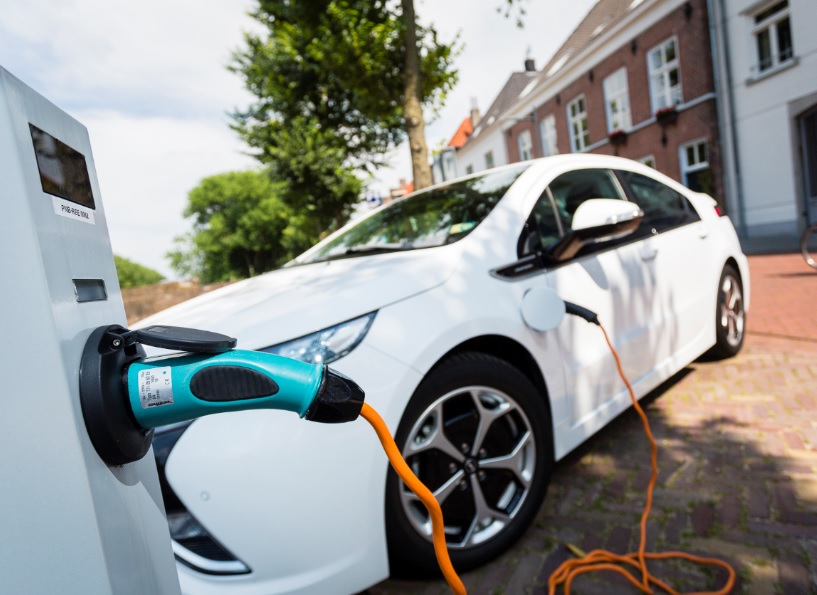 global automakers have committed to spending on electric vehicles, and that total is still growing. That will include at least $19 billion by automakers in the U.S., $21 billion in China, and $52 billion in Germany, according to a Reuters analysis. U.S. and German automakers said in interviews at the Detroit auto show that most of the investments are earmarked for China, where escalating EV quotes will be staring in 2019. Ford executives just announced that 40 electrified vehicles will be launched by the company by 2022 – 16 battery electric and 24 will be hybrid or plug-in hybrid.
global automakers have committed to spending on electric vehicles, and that total is still growing. That will include at least $19 billion by automakers in the U.S., $21 billion in China, and $52 billion in Germany, according to a Reuters analysis. U.S. and German automakers said in interviews at the Detroit auto show that most of the investments are earmarked for China, where escalating EV quotes will be staring in 2019. Ford executives just announced that 40 electrified vehicles will be launched by the company by 2022 – 16 battery electric and 24 will be hybrid or plug-in hybrid.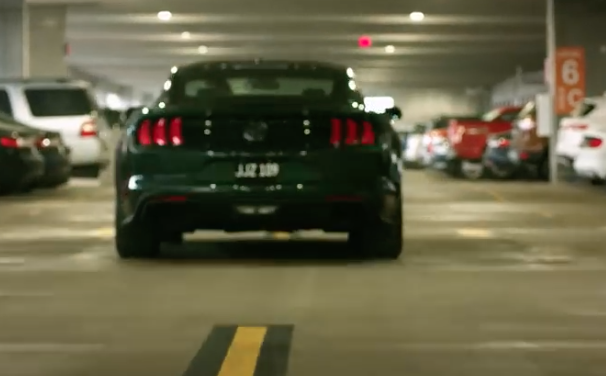 scene ever.
scene ever. 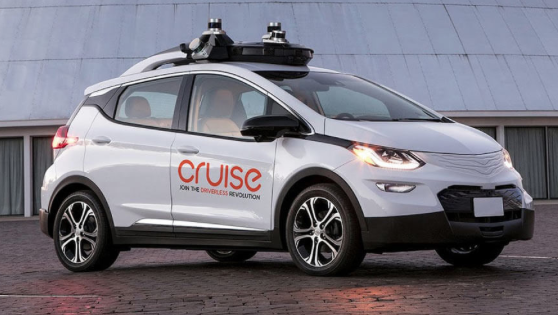 year, according to a petition filed with NHTSA. GM has asked for a Federal Motor Vehicle Safety Standards waiver on 16 rules covering vehicles with human drivers but that don’t apply to self-driving cars. If granted, GM could launch as many as 2,500 autonomous vehicles a year starting in 2019. The automaker described the “Cruise AV” self-driving vehicle in the filing, which is based on the Chevy Bolt and includes fourth-generation AV technology from its Cruise Automation subsidiary. It includes five Lidars, 16 cameras, and 21 radars for safety and functional, efficient driving. GM says its would be a type of robotaxi providing ride-hailing services. GM’s Maven carsharing division and its investment in Lyft could provide channels for bringing these electric, autonomous rides to customers.
year, according to a petition filed with NHTSA. GM has asked for a Federal Motor Vehicle Safety Standards waiver on 16 rules covering vehicles with human drivers but that don’t apply to self-driving cars. If granted, GM could launch as many as 2,500 autonomous vehicles a year starting in 2019. The automaker described the “Cruise AV” self-driving vehicle in the filing, which is based on the Chevy Bolt and includes fourth-generation AV technology from its Cruise Automation subsidiary. It includes five Lidars, 16 cameras, and 21 radars for safety and functional, efficient driving. GM says its would be a type of robotaxi providing ride-hailing services. GM’s Maven carsharing division and its investment in Lyft could provide channels for bringing these electric, autonomous rides to customers.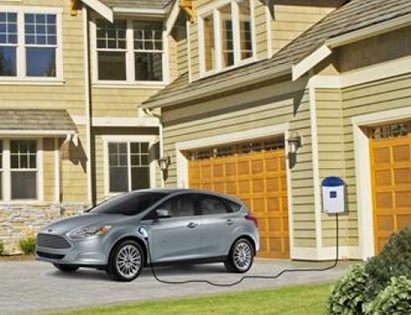 Michigan’s Sustainable Worldwide Transportation just authored
Michigan’s Sustainable Worldwide Transportation just authored 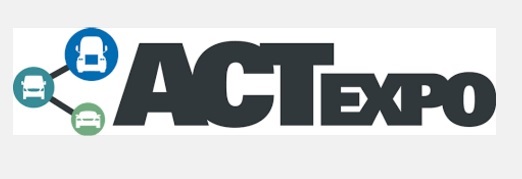 for the 2018 ACT Expo are: trucking efficiency for reducing the cost burdens of a trucking fleet; connected vehicle technologies; commercial electric vehicles; alternative fuels; urban mobility through congested, polluted cities; and goods movement. Keynote speakers and panelists will explore issues such as fuel efficiency improvement strategies and drivetrain electrification will be key focal points, set against the backdrop of increased use of alternative fuels, innovative powertrain solutions and economic and environmental fleet sustainability. The ACT Expo show floor will give attendees hands-on access to the wide range of advanced clean transportation solutions available.
for the 2018 ACT Expo are: trucking efficiency for reducing the cost burdens of a trucking fleet; connected vehicle technologies; commercial electric vehicles; alternative fuels; urban mobility through congested, polluted cities; and goods movement. Keynote speakers and panelists will explore issues such as fuel efficiency improvement strategies and drivetrain electrification will be key focal points, set against the backdrop of increased use of alternative fuels, innovative powertrain solutions and economic and environmental fleet sustainability. The ACT Expo show floor will give attendees hands-on access to the wide range of advanced clean transportation solutions available.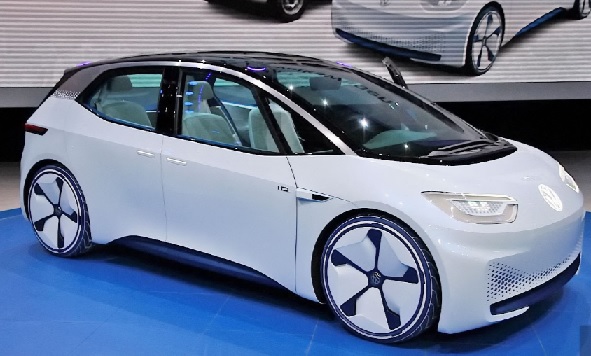 vehicles. Thomas Ulbrich will head the new division as he moves over after having been the brand’s production chief. The German automaker has named five core electric vehicle models as the first wave in its ambitious EV strategy. The I.D. hatchback will go on sale in Europe in 2020. The I.D. Crozz crossover will start sales in the U.S. the same year. The MEB platform will also be used by VW’s Audi, Seat, and Skoda brands.
vehicles. Thomas Ulbrich will head the new division as he moves over after having been the brand’s production chief. The German automaker has named five core electric vehicle models as the first wave in its ambitious EV strategy. The I.D. hatchback will go on sale in Europe in 2020. The I.D. Crozz crossover will start sales in the U.S. the same year. The MEB platform will also be used by VW’s Audi, Seat, and Skoda brands.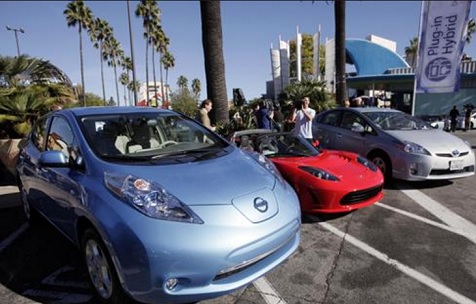 and emissions standards. On Dec. 15, William Wehrum, head of the Environmental Protection Agency’s Office of Air and Radiation, National Highway Traffic Safety Administration deputy chief Heidi King, and Mike Catanzaro, a senior White House aide, discussed goals with CARB officials on maintaining one set of national requirements for automakers in the cars they sell, according to Automotive News. Automakers have been asking the Trump administration to be lenient on fuel economy standards based on the realities of new vehicles being sold with gasoline prices staying low and consumers being more interested in trucks and SUVs. California has taken a more independent, stringent tactic on its zero emissions rules. “We’ve had productive conversations under way with CARB and I would hope those conversations continue to be productive,” Wehrum said. “I think a shared goal is to maintain one national program.”
and emissions standards. On Dec. 15, William Wehrum, head of the Environmental Protection Agency’s Office of Air and Radiation, National Highway Traffic Safety Administration deputy chief Heidi King, and Mike Catanzaro, a senior White House aide, discussed goals with CARB officials on maintaining one set of national requirements for automakers in the cars they sell, according to Automotive News. Automakers have been asking the Trump administration to be lenient on fuel economy standards based on the realities of new vehicles being sold with gasoline prices staying low and consumers being more interested in trucks and SUVs. California has taken a more independent, stringent tactic on its zero emissions rules. “We’ve had productive conversations under way with CARB and I would hope those conversations continue to be productive,” Wehrum said. “I think a shared goal is to maintain one national program.”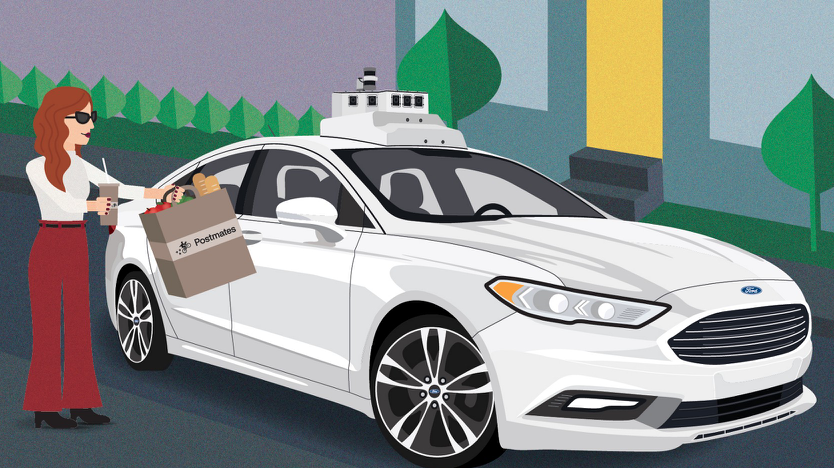 d Motor Co.
d Motor Co. 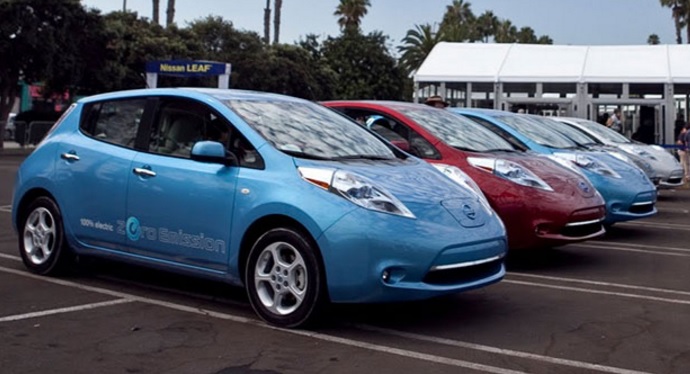 report anticipates that annual market growth will continue at 38% through 2020. Since PEVs rolled out in 2011, sales have grown by 40% or more each year. The rollout of long-range EVs at prices below $40,000 will have much do with it, Navigant Research says………….. The Renault-Nissan-Mitsubishi Alliance has set up
report anticipates that annual market growth will continue at 38% through 2020. Since PEVs rolled out in 2011, sales have grown by 40% or more each year. The rollout of long-range EVs at prices below $40,000 will have much do with it, Navigant Research says………….. The Renault-Nissan-Mitsubishi Alliance has set up 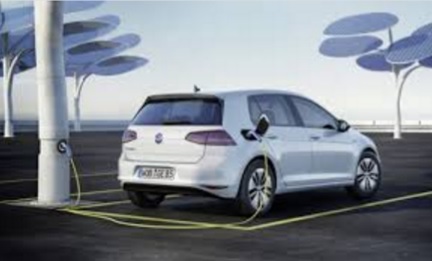 year in 2017 for the U.S. auto market. Plug-in vehicles were up significantly from about 158,000 units sold in 2016. It was also impressive compared to overall U.S. auto sales being down for the first time since 2009.
year in 2017 for the U.S. auto market. Plug-in vehicles were up significantly from about 158,000 units sold in 2016. It was also impressive compared to overall U.S. auto sales being down for the first time since 2009. statement this week, the company announced that it delivered 1,550 Model 3 small sedans in Q4 2017, up from 220 the previous quarter. Tesla expects to reach a 2,500 unit weekly rate by the end of the first quarter, and the 5,000 per week milestone by the end of the second quarter. It was a good quarter and year for the electric automaker, with 101,312 of the Model S and Model X vehicles delivered in 2017 – a 33% increase over 2016. It was the best quarter ever for Tesla, with 15,200 Model S and 13,120 Model X vehicles delivered, representing a 27% increase over Q4 2016. As for the new Model 3, the company will “continue to focus on quality and efficiency rather than simply pushing for the highest possible volume in the shortest period of time.”…………. Westport Fuel Systems Inc. has entered into a development and supply agreement with Tata Motors for their 4 cylinder and 6 cylinder natural gas spark-ignited commercial vehicle engines to meet the Indian government’s new Bharat Stage VI emission standards, scheduled to take effect in April of 2020. Westport Fuel Systems has been working with Indian automaker Tata Motors since 2012, most recently working together on developing their next generation of natural gas spark-ignited engines to meet the BS-VI emission standards. Upon completion of the program,
statement this week, the company announced that it delivered 1,550 Model 3 small sedans in Q4 2017, up from 220 the previous quarter. Tesla expects to reach a 2,500 unit weekly rate by the end of the first quarter, and the 5,000 per week milestone by the end of the second quarter. It was a good quarter and year for the electric automaker, with 101,312 of the Model S and Model X vehicles delivered in 2017 – a 33% increase over 2016. It was the best quarter ever for Tesla, with 15,200 Model S and 13,120 Model X vehicles delivered, representing a 27% increase over Q4 2016. As for the new Model 3, the company will “continue to focus on quality and efficiency rather than simply pushing for the highest possible volume in the shortest period of time.”…………. Westport Fuel Systems Inc. has entered into a development and supply agreement with Tata Motors for their 4 cylinder and 6 cylinder natural gas spark-ignited commercial vehicle engines to meet the Indian government’s new Bharat Stage VI emission standards, scheduled to take effect in April of 2020. Westport Fuel Systems has been working with Indian automaker Tata Motors since 2012, most recently working together on developing their next generation of natural gas spark-ignited engines to meet the BS-VI emission standards. Upon completion of the program,  ahead of the 2018 Consumer Electronics Show (CES) in Las Vegas. Aurora Innovation also signed a deal with Hyundai this week, similar to its alliance with VW, to bring its self-driving software into commercial use. Based in Palo Alto, Calif., and Pittsburgh, Penn., Aurora designs and builds self-driving technology, partnering with automakers to integrate, pilot and deploy advanced self-driving platforms into vehicles. Founded by CEO Chris Urmson, Chief Product Officer Sterling Anderson and Chief Technical Officer Drew Bagnell, Aurora is working to solve today’s most complex AI, automation and engineering challenges to improve transportation and positively impact cities. Urmson had played a leading role at Google’s self-driving car unit, before it became Waymo.
ahead of the 2018 Consumer Electronics Show (CES) in Las Vegas. Aurora Innovation also signed a deal with Hyundai this week, similar to its alliance with VW, to bring its self-driving software into commercial use. Based in Palo Alto, Calif., and Pittsburgh, Penn., Aurora designs and builds self-driving technology, partnering with automakers to integrate, pilot and deploy advanced self-driving platforms into vehicles. Founded by CEO Chris Urmson, Chief Product Officer Sterling Anderson and Chief Technical Officer Drew Bagnell, Aurora is working to solve today’s most complex AI, automation and engineering challenges to improve transportation and positively impact cities. Urmson had played a leading role at Google’s self-driving car unit, before it became Waymo. even though EVs didn’t even make the the top 10 for the previous year. More than 100 battery-electric models will be sent to dealerships globally within five years. Its become easier to list which automakers don’t have big plans for EVs in the near future. Cheaper batteries will drive it, along with several countries saying they’ll ban gasoline-powered vehicles within a few decades…………… LeEco CEO Jia Yueting had been ordered by Chinese regulators to return to China before the end of 2017, but did not make that appearance. Jia had said he’d stayed in the U.S. to do fundraising
even though EVs didn’t even make the the top 10 for the previous year. More than 100 battery-electric models will be sent to dealerships globally within five years. Its become easier to list which automakers don’t have big plans for EVs in the near future. Cheaper batteries will drive it, along with several countries saying they’ll ban gasoline-powered vehicles within a few decades…………… LeEco CEO Jia Yueting had been ordered by Chinese regulators to return to China before the end of 2017, but did not make that appearance. Jia had said he’d stayed in the U.S. to do fundraising  Shale oil drills can now plunge deep, pivot, and tunnel sideways for miles until they find an oil pocket, said Frank Verrastro, senior vice president at the Center for Strategic and International Studies.
Shale oil drills can now plunge deep, pivot, and tunnel sideways for miles until they find an oil pocket, said Frank Verrastro, senior vice president at the Center for Strategic and International Studies.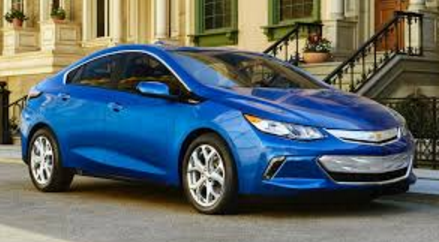 vehicles like the Chevrolet Bolt.
vehicles like the Chevrolet Bolt. 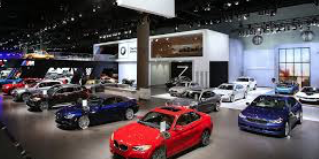 revised strategy being tried out at auto shows is having on car shopping. Events such as the LA Auto Show have been less about the wonders of far-out advanced technology, and more about bringing to life the innovations found in today’s vehicles. Learning more about the new vehicles and their capabilities goes far beyond those visiting the showrooms, with millions of consumers gaining digital access to the car shows online. Cars are coming equipped with interactive systems like Apple’s Siri and Amazon’s Alexa that allow for verbal commands and touch screens simplifying the process — and getting car owners to see new possibilities coming through the technology. Connected car systems are expected to be the gateway to fully autonomous vehicles coming to roads over the next decade. Today, drivers can tap into mobility functions to manage charging their electric vehicle through voice commands, and to find out about available public charging spots.
revised strategy being tried out at auto shows is having on car shopping. Events such as the LA Auto Show have been less about the wonders of far-out advanced technology, and more about bringing to life the innovations found in today’s vehicles. Learning more about the new vehicles and their capabilities goes far beyond those visiting the showrooms, with millions of consumers gaining digital access to the car shows online. Cars are coming equipped with interactive systems like Apple’s Siri and Amazon’s Alexa that allow for verbal commands and touch screens simplifying the process — and getting car owners to see new possibilities coming through the technology. Connected car systems are expected to be the gateway to fully autonomous vehicles coming to roads over the next decade. Today, drivers can tap into mobility functions to manage charging their electric vehicle through voice commands, and to find out about available public charging spots.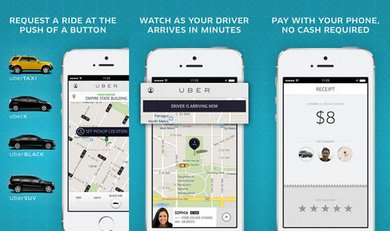 had argued that it merely provides a mobile app linking riders to car owners, and not a taxi or livery company. The case had come out after Barcelona ruled that Uber was to obey local taxi rules in that city. Uber downplayed the court ruling, saying that the company already operates under transportation laws in most European Union countries. Analysts say the ruling will have serious implications for Uber and other similar companies operating in the new gig economy. Uber and its new management team have a set of challenges to face after going through a difficult year.
had argued that it merely provides a mobile app linking riders to car owners, and not a taxi or livery company. The case had come out after Barcelona ruled that Uber was to obey local taxi rules in that city. Uber downplayed the court ruling, saying that the company already operates under transportation laws in most European Union countries. Analysts say the ruling will have serious implications for Uber and other similar companies operating in the new gig economy. Uber and its new management team have a set of challenges to face after going through a difficult year.